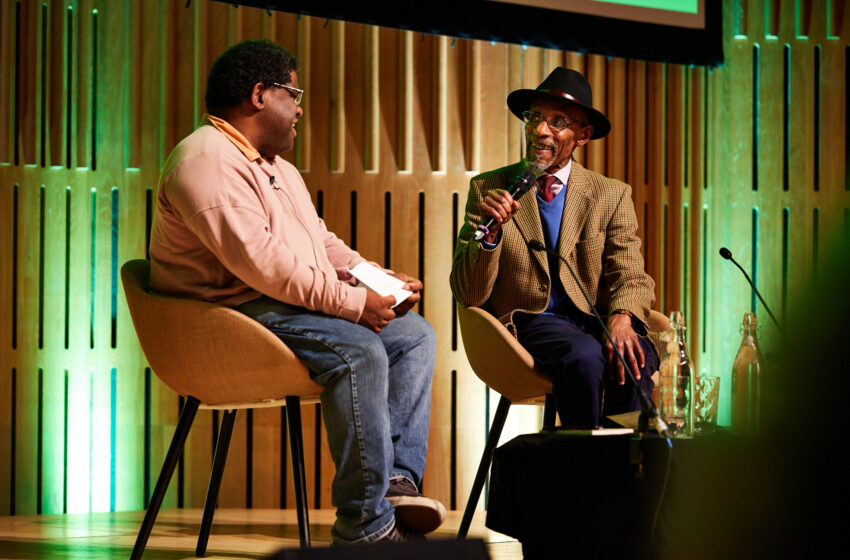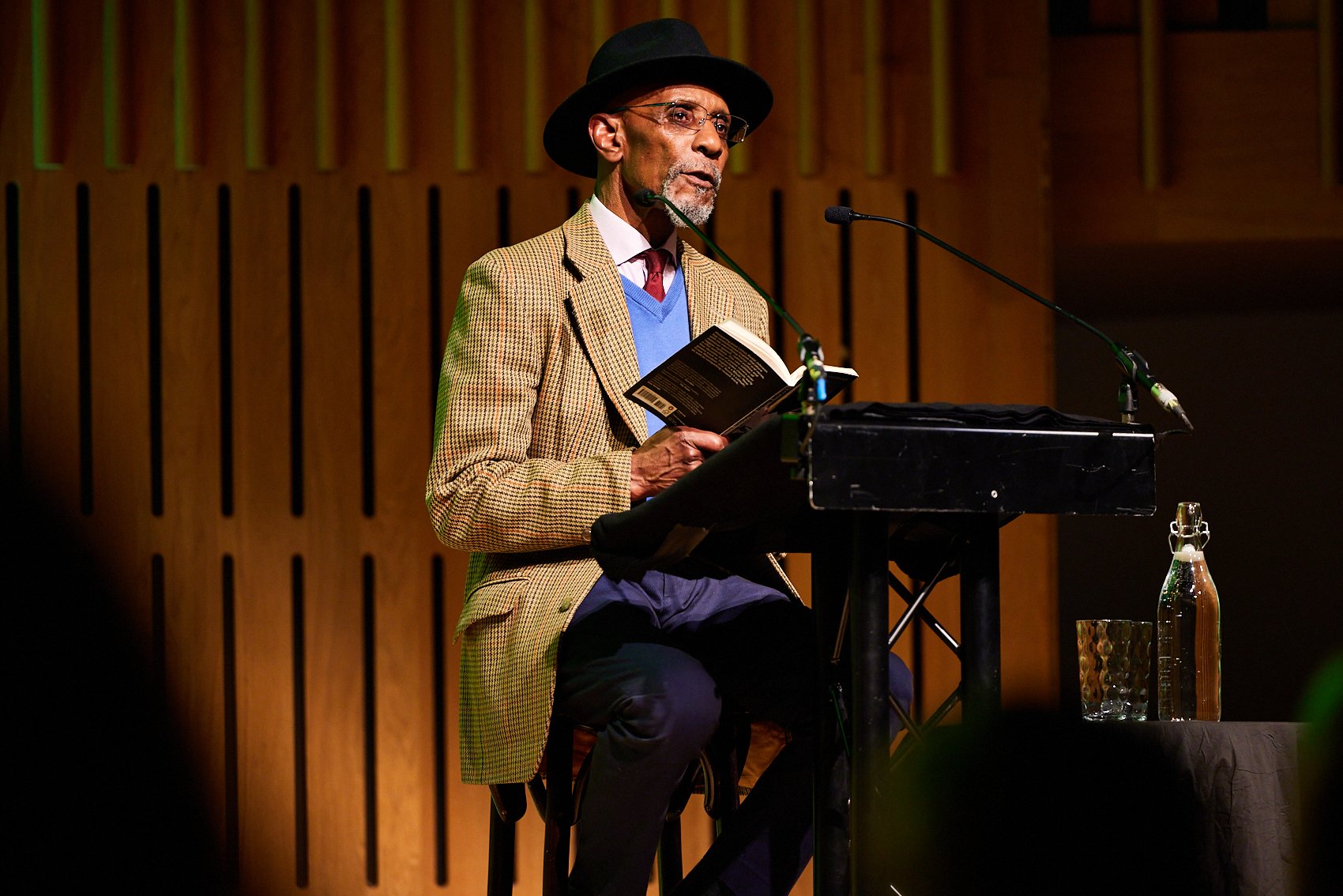
A Long History of activism, poetry, and checking his watch…: Linton Kwesi Johnson in Conversation with Gary Younge at Opera North’s Howard Assembly Room
I was delighted to be able to go and see Linton Kwesi Johnson (LKJ), London’s renowned Jamaican poet, activist, and acclaimed writer on Friday 7th October at the Howard Assembly Room in town. He was in conversation with renowned journalist and sociology Professor at University of Manchester Gary Younge. The evening was part of ‘Out of Many Lit’ – a week-long festival run by Jamaica Society Leeds celebrating 60 years of Jamaican Independence and the impact Jamaican culture has had on Leeds and the UK.
The talk began with Gary Younge introducing LKJ as someone that doesn’t age – indeed, his suit and hat were subject to many an affectionate reaction throughout the conversation from the audience. While the couture is evidently in continuum, LKJ’s words have much the same effect, resonating across generations. Johnson explained that he originally put drums over his poetry to make it cooler for younger people – there weren’t any accompanying drums in the Howard Assembly Room, but that didn’t make his readings any less outstanding.
As part of October’s ongoing Black History Month, Johnson expounded on the intersections of protest, poetry, and local history – reading ‘Sonny’s Letah (Anti-Sus Poem)’ which detailed England’s abhorrent anti-sus laws; further contextualising it with ‘It Dread inna Inglan (for George Lindo)’. Indeed, Bradford’s 1979 case whereby George Lindo was wrongfully imprisoned for armed robbery only to be later released for £25,000 compensation was eye-opening.
In the current time when the protests in the aftermath of the police murder of unarmed Chris Kaba in South London went largely unnoticed due in large part to Elizabeth II’s death, a monarch who oversaw much of the complicit colonial rule in many parts of the world, it is all the more present that England has a long reckoning to do with its officially recorded anti-‘institutional racism’ stance.

Further recent affairs such as lockdown were explored, with Johnson’s ‘Di First Lockdown’ – a poem LKJ penned after a “really, really, really, really long [hiatus].” Indeed, I felt that returning to Leeds this year after a year abroad, campus and the surrounding Woodhouse area felt increasingly like a ‘treasured oasis of togheddahness’. Johnson’s marvelous imagery of bubbles, balloons, continued with ‘tiny droplets of distress / vanish in di warm spring air’.
As Autumn now settles in and the trees age visibly, all kinds of poetry seems to keep many things alive and well. Perhaps it is the ‘medisinal waaks’ that bolster Johnson’s ability to become “history personified – at his age.” Or perhaps, it is the everlasting spirit that he has enacted, that carry his words, tick ticking like a watch. There he goes again.
Featured image credit: David Lindsay, picture courtesy of the Jamaica Society Leeds.

